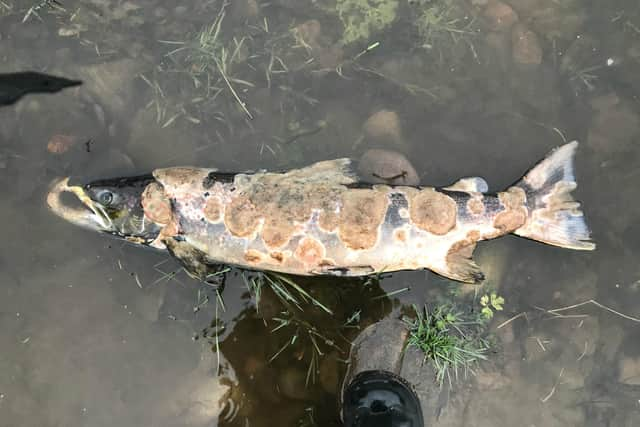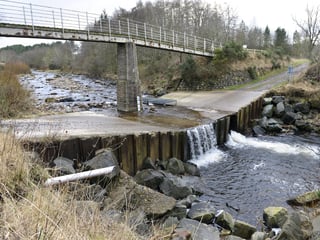Fears allayed by Environment Agency after dead fish spotted in Northumberland river
and live on Freeview channel 276
Concerns were raised by members of the public after dead fish were spotted in the River Coquet.
However, the Environment Agency has explained that, between November and January, people are likely to see a large number of dead and dying salmon and sea trout in our region’s rivers.
Advertisement
Hide AdAdvertisement
Hide AdIt wants to ease any public fears by confirming these are perfectly natural occurrences taking place at the end of the spawning season.


Jon Shelley, fisheries technical team leader, Environment Agency in the North East, said: “Every year thousands of migrating salmon and sea trout complete their life-cycles by spawning in the gravel-rich upper reaches of our region’s rivers.
"Although a fantastic and natural occurrence, the spawning activity is also associated with many of those fish dying after they have successfully spawned, having completed their natural life cycle.
“Many of the fish endure a long and arduous journey, and in the case of the salmon – they often go months without feeding and needing to rely on stored body fats to survive. They are likely to have successfully spawned before they die, giving life to future generations of salmon and sea trout.
Advertisement
Hide AdAdvertisement
Hide Ad“There is no need to remove the dead fish from the water as they will continue to fertilise the river as they decay, and naturally boost its productivity.”
Other reports may include the fish being described as lethargic, splashing around, and very commonly showing large white cotton wool shaped patches on their skin, which are signs of a common fungal infection.
This fungus is naturally present in cold freshwater and is usually associated with fish that have had experienced some physical damage during their long migration journey. Again this is a natural occurrence and although unsightly, these fish may also successfully spawn and should be left in the river.
Any photographic evidence of the reported fish incidents that people are able to record is always much appreciated.
Advertisement
Hide AdAdvertisement
Hide AdIncidents of dead fish should always be reported to the Environment Agency by people calling the emergency hotline number 0800 80 70 60 to enable any appropriate action to be taken by our officers.
